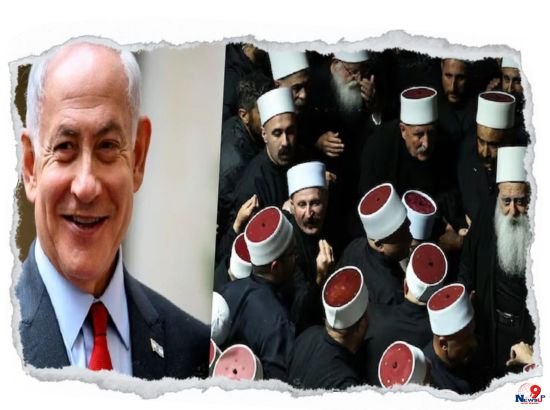
In a dramatic escalation, Israeli forces launched attacks near the Syrian presidential palace early Friday morning. The military action follows days of violent clashes between Syrian Druze militias and pro-regime armed groups in the Damascus suburb of Sahnaya, resulting in dozens of casualties.
The Netanyahu-led Israeli government justified its intervention as a mission to protect the minority Druze community in Syria, citing recent violence and threats against them. After a change in government in Damascus in December 2024, Israel promised to defend the Syrian Druze.
This minority has often stayed neutral during Syria’s civil war, especially in areas like Suwayda and suburbs near Damascus. But recent attacks and marginalization under the Assad regime pushed some Druze fighters to rebel.
The Druze are a small ethnoreligious group that originated in the 11th century as an offshoot of Islam, blending Islamic principles with ancient traditions and elements of Greek philosophy. The community strongly believes in reincarnation and monotheism, and once born into the Druze faith, a person cannot convert in or out of it.
The Druze population is primarily concentrated in the Middle East, with approximately 1 million members living in:
Syria (mainly Suwayda and parts of Damascus)
Lebanon (particularly the Chouf mountains)
Israel (about 150,000, mainly in the north and Golan Heights)
Jordan (small communities near the Syrian border)
In Israel, Druze citizens are required to serve in the military, unlike other Arab communities. Over the decades, they have become deeply integrated into Israeli society, especially in the military and civil services. Many Druze have served as:
Generals in the Israeli Defense Forces (IDF)
Ambassadors
Members of the Knesset (Israeli Parliament)
Government ministers
Druze loyalty to the Israeli state dates back to 1948, when they supported Jewish forces during Israel’s war of independence. The turning point came after threats by Sunni leadership in 1942 to seize the Tomb of Jethro (which Druze call Shuayb) in Tiberias. Since then, Druze fighters have stood with Israel in every Arab-Israeli conflict.
The Druze are the only Arab group conscripted into the IDF, and many have led from the front lines in battles against groups like Hamas.
The Druze are widely respected in Israeli society for their loyalty and sacrifices. They are seen not only as fellow citizens but also as an integral part of the Israeli national identity. Prime Minister Benjamin Netanyahu enjoys broad support from the Druze community and has often defended their rights and role in national security.
The recent operation in Syria reflects this long-standing bond. Netanyahu’s government sees the protection of the Druze—even outside Israel’s borders—as a strategic and moral obligation, especially in the face of increasing Iranian influence and militia threats in Syria.